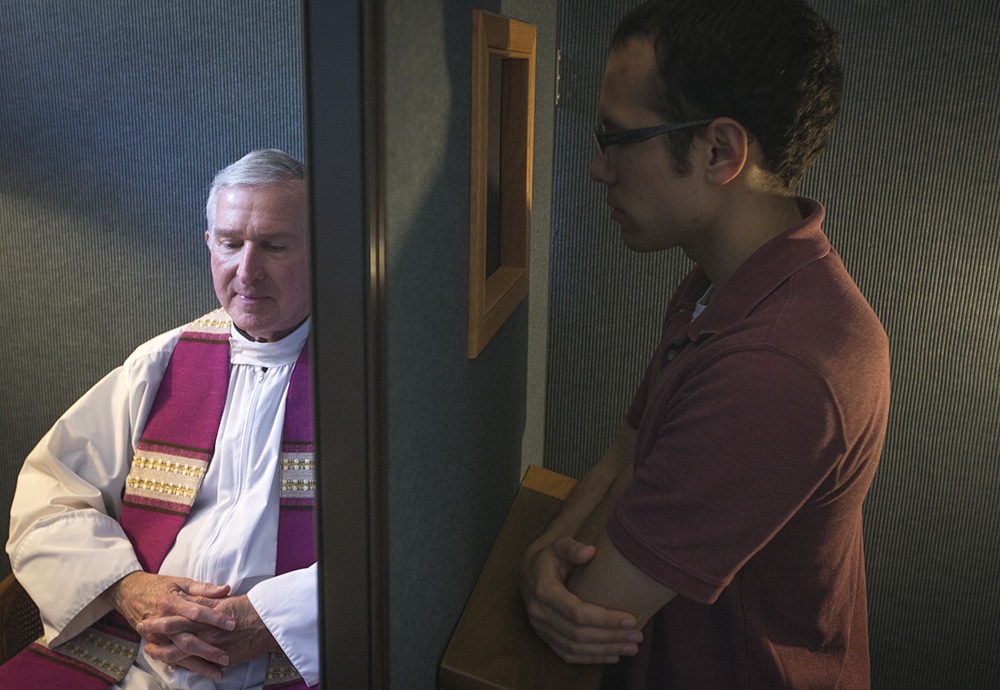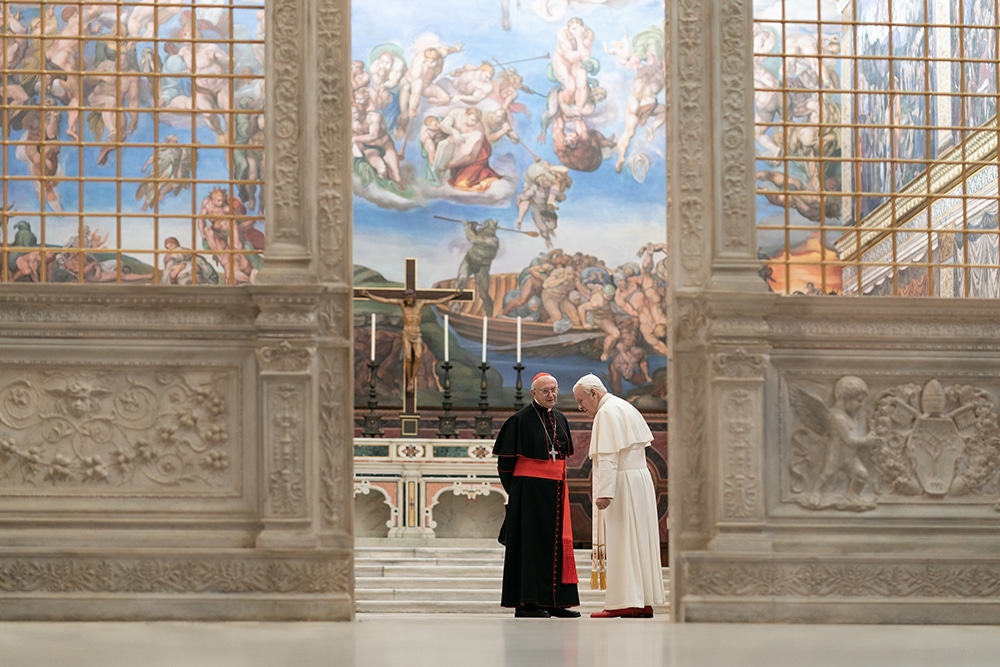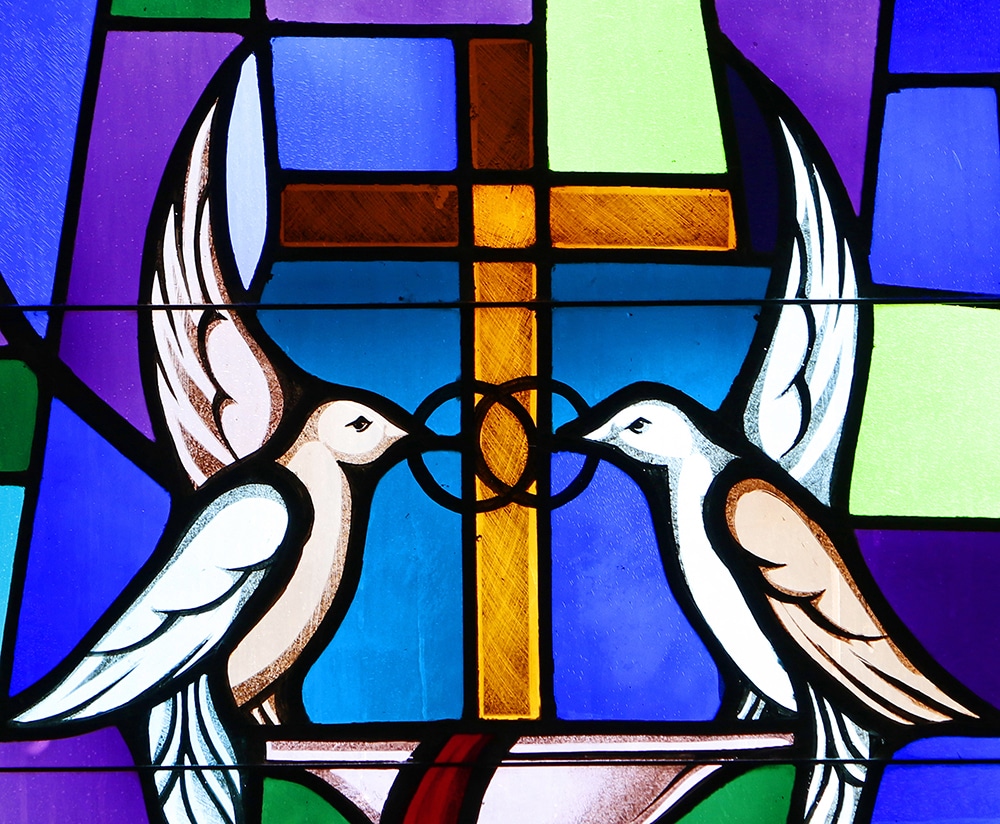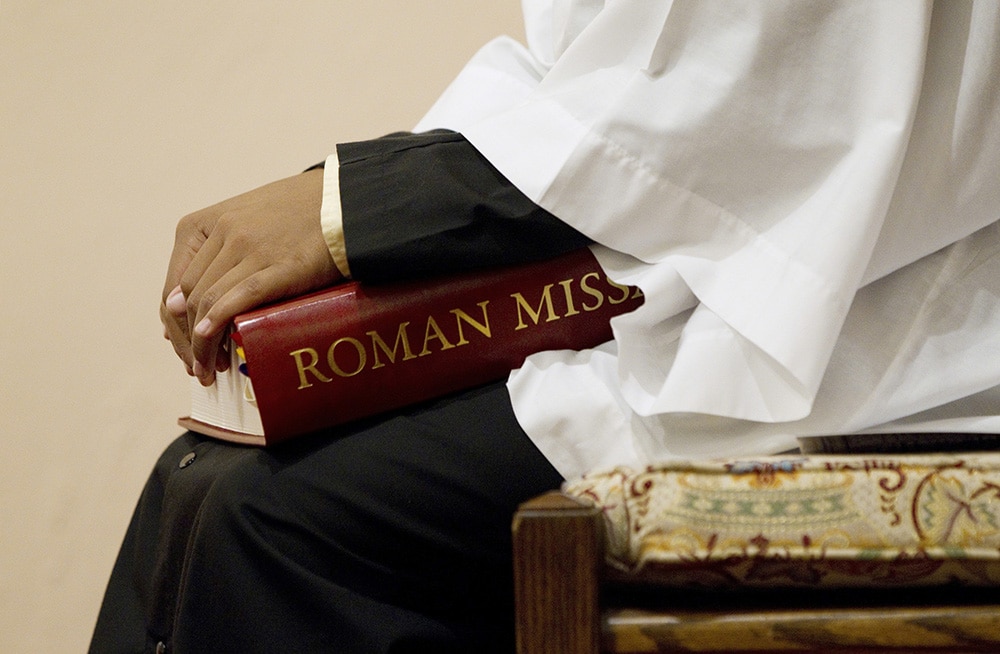 Question: I try to make regular confessions, and I try to make a good examination of conscience before doing so, but when I get into the confessional, too often I freeze up and can’t remember my sins. As a priest, do you have any tips to help make a more thorough confession?
Question: I try to make regular confessions, and I try to make a good examination of conscience before doing so, but when I get into the confessional, too often I freeze up and can’t remember my sins. As a priest, do you have any tips to help make a more thorough confession?
Answer: I have found that many bring their cellphones into the confessional and, having made notes, actually read from it during confession. While this may seem impious to some, to many others it is a practical solution to the common problem you mention. Some also bring written notes with them. The only potential problem with that is that the light is often low in traditional confessionals, and this sometimes makes reading a written text difficult. The point, however, is that you ought not be anxious about bringing some form of written reminder with you to confession. Frankly, most priests appreciate when a penitent has prepared beforehand and is not relying solely on memory. While confession is a sacrament and, like all sacraments, summons from us a reverential celebration, confession is also a moment of human interaction between priest and penitent. Helping to facilitate that interaction is integral to the prompt and fruitful reception of confession.
Many priests also seek to help penitents at the moment of confession by posting in the confessional an act of contrition they can read. Here, too, while we might wish everyone memorized any number of Catholic prayers, the main point of confession is not to pass a test but to encounter Christ and his saving mercy. Things that can help alleviate anxiety and other concerns that might discourage approaching the sacrament ought to be encouraged.
Remember, too, you are only required to mention serious (mortal) sins in confession. We usually cannot remember all venial sins. It suffices to focus on the more serious matters, stating them in kind and number. You are free and encouraged to mention common venial sins, but every single and possible sin or foible need not be mentioned in every confession.
As for making a “more thorough” confession, there are many good examinations of conscience both online and in books. I also recommend certain biblical texts that are quite helpful. For example, the Letter to the Colossians provides a fruitful examination: “Put on then, as God’s chosen ones, holy and beloved, heartfelt compassion, kindness, humility, gentleness, and patience, bearing with one another and forgiving one another, if one has a grievance against another; as the Lord has forgiven you, so must you also do. And over all these put on love, that is, the bond of perfection. And let the peace of Christ control your hearts, the peace into which you were also called in one body. And be thankful” (Col 3:12-15). Reading a text like this is a good reminder that we all fall short of the biblical vision of holiness. Another example can be found in the First Letter to the Corinthians: “Love is patient, love is kind. It is not jealous, [love] is not pompous, it is not inflated, it is not rude, it does not seek its own interests, it is not quick-tempered, it does not brood over injury, it does not rejoice over wrongdoing but rejoices with the truth. It bears all things, believes all things, hopes all things, endures all things” (1 Cor 13:4-7).
Finally, you ought to feel free to ask the priest for help if you struggle to examine your conscience or, while in confession, wonder if you remembered everything. He can assist and reassure you about what to do if later you remember something serious you wanted to confess.
Learning about the Faith
Question: One of my New Year’s resolutions is to take a more proactive approach in learning about the Faith, but with more than 2,000 years’ worth of history, where does somebody begin learning about various councils, encyclicals, saints, etc.? It seems like a tall mountain to climb.
Answer: Step one is to decide what area you would most like to study: History, doctrine, sacraments, liturgy, the lives of the saints, etc. There is no one book that will cover everything. Having decided on your focus, the OSV catalogue has many titles that cover these and other categories. I personally recommend that you might start with a good history book of the Catholic Church. It is not my intention here to recommend a specific book, but you might begin by looking at the OSV bookstore and finding a book whose scope and detail suits your needs. There are many resources!
Msgr. Charles Pope is the pastor of Holy Comforter-St. Cyprian in Washington, D.C., and writes for the Archdiocese of Washington, D.C. at blog.adw.org. Send questions to msgrpope@osv.com.







